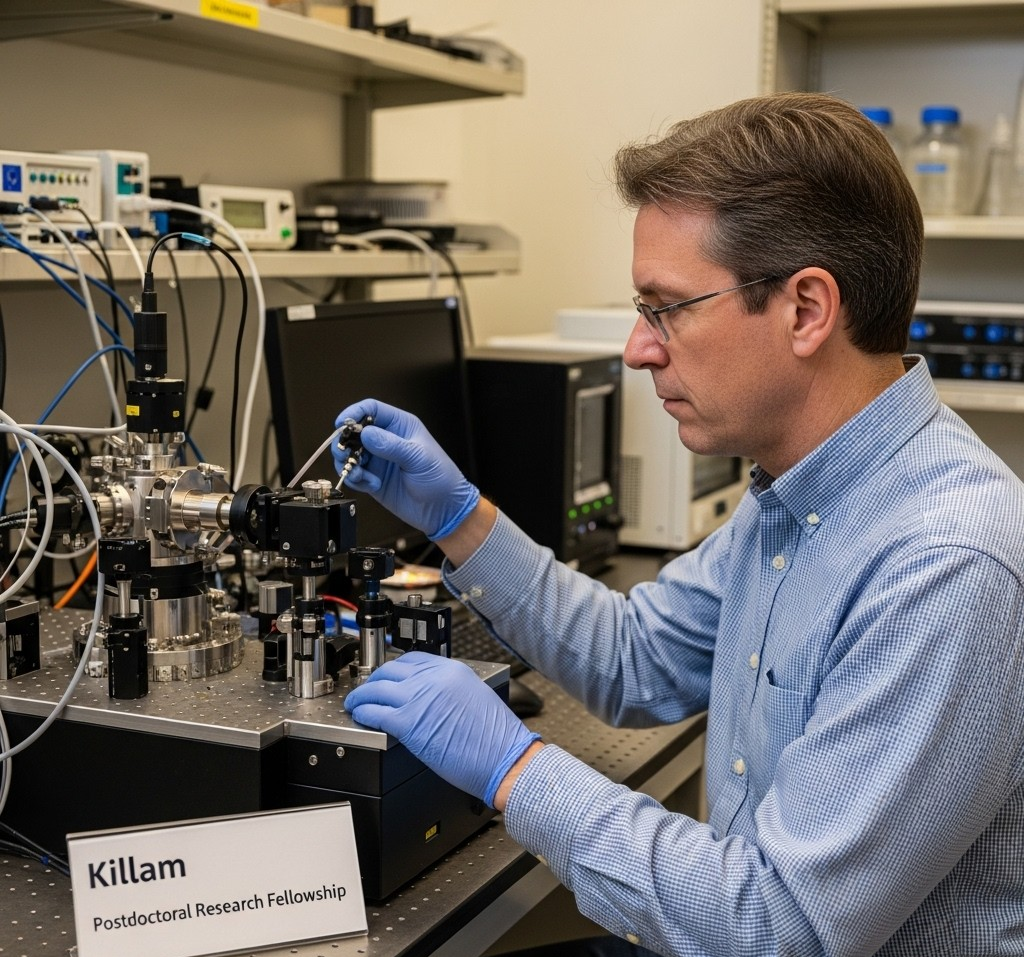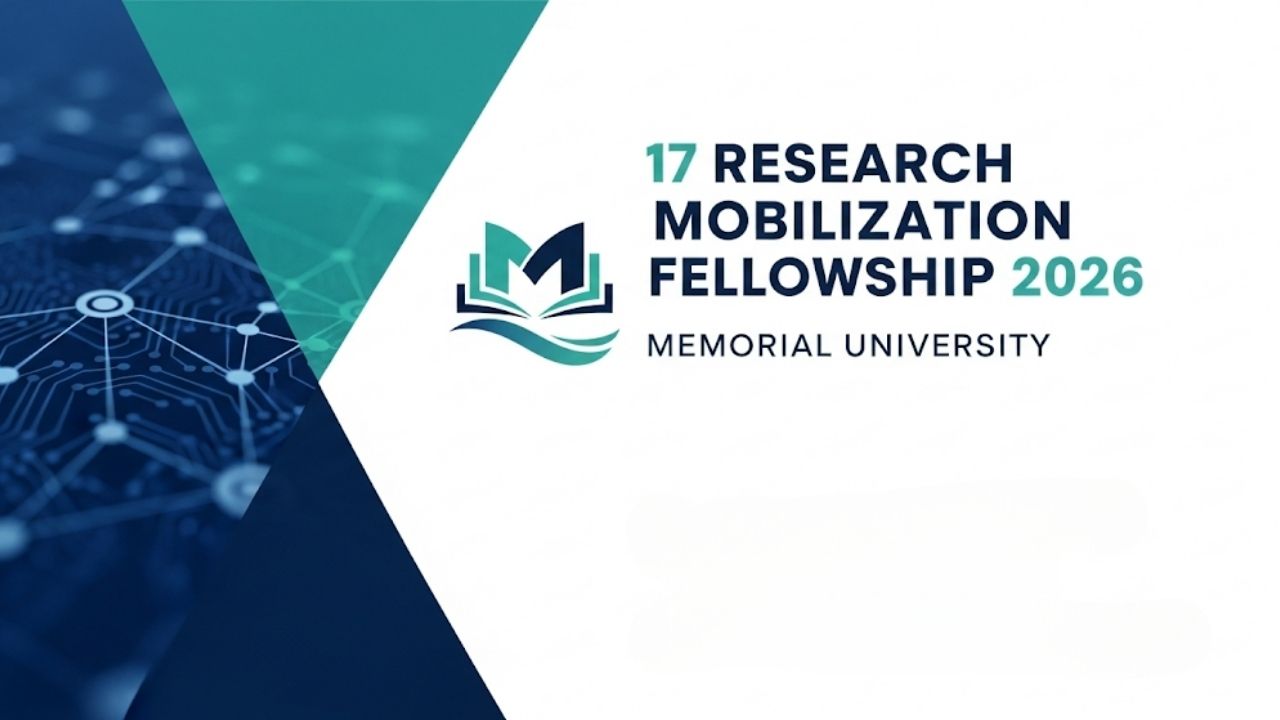The pursuit of groundbreaking research is a journey fueled by passion, intellect, and often, crucial financial support. For aspiring postdoctoral scholars, the Killam Postdoctoral Research Fellowship 2025 stands as a beacon of opportunity, a prestigious award designed to empower exceptional minds to push the boundaries of knowledge. As a seasoned writer who has seen countless researchers navigate the complex world of academic funding, I can tell you that securing a fellowship of this caliber is not just about your research; it’s about crafting a compelling narrative of your potential.
This comprehensive guide will walk you through every facet of the Killam Postdoctoral Research Fellowship 2025, from understanding its core purpose to mastering the application process. We’ll uncover insights, offer actionable advice, and inspire you to confidently present your unique vision.
What is the Killam Postdoctoral Research Fellowship?
The Killam Scholarship and Prize Programmes, established in memory of Izaak Walton Killam and through the generous contributions of his wife, Dorothy Johnston Killam, are among Canada’s most esteemed academic awards. Their primary purpose is to support advanced education and research at five Canadian universities (University of British Columbia, University of Calgary, University of Alberta, Dalhousie University, and McGill University) and through the Canada Council for the Arts. The Killam Postdoctoral Research Fellowship, in particular, is awarded annually to outstanding individuals who have recently completed their doctoral programs and are poised to make significant contributions to their fields.
The spirit of the Killam endowments is to foster scholars who are not “one-sided” but possess a sound character complementing their intellectual distinction. This holistic view is crucial to understanding the fellowship’s ethos.

Killam Postdoctoral Research Fellowship 2025
| Key Fact | Detail/Statistic |
| Purpose | To support advanced education and research, fostering scholars who contribute to the advancement of learning. UBC History Department |
| Award Value (UBC) | Annual stipend of $60,000 for up to two years. |
| Award Value (UCalgary) | $50,000 per year for up to two years, plus a one-time $6,000 research allowance. |
| Eligible Universities | University of British Columbia, University of Calgary, University of Alberta, Dalhousie University, McGill University, and Canada Council for the Arts. |
| Citizenship | Open to applicants of any nationality, though specific university requirements may vary. |
| PhD Completion Window | Generally, PhD must be completed no more than 24-36 months prior to the anticipated fellowship start date. Extensions possible for career interruptions. UBC College of Graduate Studies |
Decoding Eligibility: Are You a Fit for the Killam Fellowship?
Before you even think about drafting your research proposal, it’s essential to understand the core Killam Postdoctoral Research Fellowship eligibility criteria. While specific details can vary slightly between the participating universities, several common threads run through them all.
Generally, successful applicants will have completed all requirements of their PhD within a specific timeframe – typically no more than 24 to 36 months prior to the anticipated fellowship start date. This is crucial; it’s about when you completed your degree, not necessarily your convocation date. Universities often specify that the completion date refers to when all thesis defense corrections and deposition requirements were met.
Another key criterion is that you must not have pursued PhD-level studies at the specific campus where you intend to hold the fellowship (e.g., if applying to UBC, you shouldn’t have done your PhD at UBC). The fellowship aims to bring fresh intellectual insights and foster new collaborations within the institution. Furthermore, you should not currently hold a tenure-track or continuing faculty position. Temporary or non-tenure track faculty appointments may be eligible, so it’s always worth checking the specific university’s guidelines.
The Killam Trusts also emphasize the candidate’s character and broader engagement. They seek individuals who are likely to “contribute to the advancement of learning or to win distinction in a profession,” and who are not “one-sided.” This means showcasing not just your academic brilliance but also your leadership potential, communication skills, and commitment to community.

The Application Journey: Navigating the Killam Process
The application process for the Killam Postdoctoral Research Fellowship 2025 is rigorous but incredibly rewarding. It typically involves several key components, and paying meticulous attention to each is paramount.
Killam Postdoctoral Research Fellowship 2025 Application Guide
- Identify Your Host University and Supervisor: This is arguably the most critical first step. The Killam Fellowships are university-specific. You need to identify a faculty member at one of the five eligible Canadian universities who is willing to serve as your proposed supervisor. This often involves reaching out to potential supervisors well in advance, presenting your research ideas, and securing their commitment. Their support and the suitability of the research environment will be heavily weighted. In my experience advising students, one common hurdle is underestimating the time it takes to secure a supervisor; start this process early!
- Understand the University-Specific Guidelines: While the Killam Trusts set overarching principles, each university administers its own competition with distinct internal deadlines and application portals. For example, Dalhousie University might have a December deadline, while UBC’s internal nomination deadlines could be in October. Always consult the official graduate studies or research office website of your target university for the most up-to-date and precise information.
- Craft Your Research Proposal: This is the heart of your application. Your proposal should be clear, concise, and compelling, demonstrating originality, merit, potential significance, clarity, and feasibility. It should clearly articulate how your proposed project builds upon existing knowledge and what new insights it will offer. Consider how your research aligns with the broader mission of advancing learning and contributing to Canada’s future.
- Prepare Your Curriculum Vitae (CV): Your CV should highlight your academic achievements, publications, presentations, awards, and any relevant work or volunteer experience. Tailor it to emphasize your research excellence and leadership potential.
- Write a Powerful Candidate Statement: This is your opportunity to tell your story beyond your academic record. Explain your motivations, your passion for your research, and how the Killam Fellowship will help you achieve your career aspirations. This is also where you can address any career interruptions or delays, providing justification for eligibility extensions if needed. Some applications may also ask for a “community engagement statement” outlining how you interact with the broader community, reflecting the “not one-sided” attribute of a Killam scholar.
- Secure Strong Letters of Support: You’ll typically need two or three letters of recommendation. Choose referees who know your work intimately and can speak to your research excellence, intellectual curiosity, and personal qualities. Crucially, inform your referees well in advance and provide them with all necessary information (your CV, research proposal, and the fellowship guidelines) to enable them to write strong, specific letters. Some universities may send automatic email notifications to referees once you submit your application, with a short window for them to submit their letters. Your proposed supervisor cannot be one of your referees.
- Assemble and Submit Your Application: Ensure all required components are prepared and organized as specified, often in a single PDF file. Pay close attention to file naming conventions and submission portals. Incomplete or late applications are generally not accepted.
The Benefits of a Killam Fellowship: Beyond the Stipend
Beyond the prestige, the Killam Postdoctoral Research Fellowship offers tangible and transformative benefits for your research career. While the financial support – an annual stipend (e.g., $60,000 at UBC, $50,000 at UCalgary) and often a research or travel allowance – is significant, the true value extends far beyond.
Killam Fellows gain access to world-class research facilities and a vibrant academic community at leading Canadian universities. This environment fosters interdisciplinary collaborations, which I’ve seen many successful applicants focus on. It provides an unparalleled opportunity to develop new skills, expand your professional network, and establish yourself as a leader in your field. Many Killam laureates go on to achieve significant distinctions in academia and beyond.
Life as a Killam Fellow: Impact and Inspiration
Being a Killam Fellow is not just about conducting research; it’s about being part of a legacy of excellence. Killam scholars are expected to contribute to the advancement of learning and demonstrate their potential to win distinction. This often involves engaging in knowledge mobilization activities and participating in an interdisciplinary Killam Network, contributing to the broader academic and societal landscape.
Consider the impactful work of past Killam laureates. Dr. Adam Wei Tsen, a recipient of the Dorothy Killam Research Fellowship, for instance, is advancing transformational research in 2D quantum materials, with the potential to significantly impact quantum technology. Similarly, Sofia Graham, a Killam Postdoctoral Fellowship awardee at UBC, is developing microfluidic technologies to gain new insights into processes like cancer cell invasiveness, with a clear focus on improving patient diagnosis and treatment. These stories are not just inspiring; they illustrate the calibre of research and the kind of impact the Killam Trusts aim to support.
Preparing for Success: Your Path Forward
Applying for a Killam Postdoctoral Research Fellowship is a highly competitive endeavor, but with meticulous preparation and a clear understanding of what the committee seeks, you can significantly increase your chances of success.
Here are some key takeaways as you embark on this exciting journey:
- Start Early: Securing a supervisor, refining your research proposal, and obtaining strong letters of recommendation all take time.
- Tailor Your Application: Customize your proposal and statements to the specific university and how your work aligns with the Killam attributes (e.g., barrier-breaker, inclusive collaborator, research leader).
- Highlight Your Impact: Clearly articulate the potential significance of your research to your field and, ideally, to society at large.
- Showcase Your “Non-One-Sided” Nature: Demonstrate your leadership, communication skills, and engagement beyond pure academics.
- Proofread Meticulously: A flawless application speaks volumes about your attention to detail and professionalism.
Charting Your Path to Excellence: University of Cambridge Research Fellowships 2026
Enrico Fermi Fellowships 2025 Open for International PhD Students
FAQ
Q1:When is the application deadline for the Killam Postdoctoral Research Fellowship 2025?
Application deadlines for the Killam Postdoctoral Research Fellowship 2025 vary by university. For instance, some universities may have internal deadlines as early as December 2024 for nominations, while others might have deadlines for direct applications in May 2025 or November 2025. It is crucial to check the specific university’s official graduate studies or research office website for the exact and most up-to-date deadlines.
Q2:What research areas are eligible for the Killam Postdoctoral Research Fellowship?
The Killam Postdoctoral Research Fellowship is available for most fields of research. The Killam Trusts support advanced education and research across a broad spectrum of disciplines, including humanities, social sciences, natural sciences, health sciences, and engineering. The key is that your proposed research demonstrates excellence, originality, and the potential to significantly advance learning.
Q3:Can international students apply for the Killam Postdoctoral Research Fellowship?
Yes, the Killam Postdoctoral Research Fellowship is generally open to applicants of any nationality. However, non-Canadian applicants are responsible for securing the necessary visa or work permit to undertake the fellowship in Canada. Specific requirements might vary slightly by the host university, so it’s always advisable to confirm with the institution you are applying to.
Q4:How competitive is the Killam Postdoctoral Research Fellowship?
The Killam Postdoctoral Research Fellowship is highly competitive. It is one of Canada’s most prestigious postdoctoral awards, attracting top talent from around the world. Successful applicants typically demonstrate outstanding academic records, a strong publication history, and a compelling, innovative research proposal, along with personal qualities aligning with the Killam attributes.










